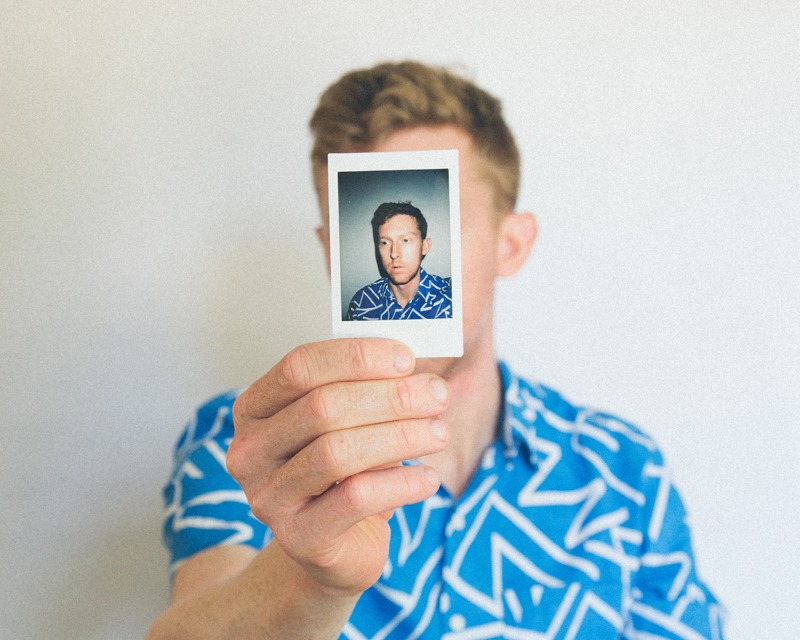Your ego, your friend
“The ego is bad and you should drop it”. “Our ego brings all the bad things on us and, in fact, we don’t really need it”. Are these statements really true? What if such attitude towards the ego is damaging to us and hinders achieving inner harmony?

In order to explain why I think that the ego is our friend, not foe, I am going to write about parts of personality, or subpersonalities. This is what my previous article Internal Family Systems - Meet your inner family was about and I really recommend that you read it first, if you want to fully understand the mechanisms described in the present text.
Big Fat Ego
The concept of “big fat ego” is deeply rooted in our culture. It’s a way of thinking that permeates the circles of psychology or personal development enthusiasts as well as other social groups. In the environments which consider spiritual growth as the greatest value, divesting oneself of the ego is often said to be the paramount goal of each person’s life. It seems to us that setting oneself free of the ego is a ticket to happiness, to living in the moment and to emotional freedom.
The word “ego” pops up quite often in our everyday communication. For instance, the set phrase “big fat ego” usually comes to our head when we meet an overconfident person.

You don’t have to look hard for other phrases of this sort. I have just googled the word “ego” in the image tab and what popped up was loads of photos with critical quotes and negative opinions on the ego. Here are just a few of them to give you the gist:
- The death of the ego will be the beginning of your real life.
- Ego is just like dust in the Eyes. Without clearing the dust, we can't see anything clearly, so clear the ego and see the World.
- This is what you should tell your ego: “You have brought only trouble on me. I hate you and I will destroy you”.
- If you feel resentment when being corrected by someone, you’ve got problem with your ego.
It was a year ago when the book by Ryan Holiday “Ego Is the Enemy”. The back cover blurb of the book says:
"Whether you are on the verge of success, at the top of your career, or have gone through the biggest failure in your life, your ego can effectively lead you to self-destruction. (...) You are about to break the ego before bad habits start to develop, then work on humility and discipline in order to use it in the time of success, and also learn to cultivate strength and perseverance, so that no failure can ever destroy you. Tame your ego before it destroys you! "
I haven’t read that book so I won’t judge its content but the title and synopsis sends out a quite clear-cut message and spreads the bad ego myth.
What the ego really is
It’s interesting how many people are so eager to talk about someone else’s ego and judge how big it is, without even being aware what it really is. In our culture, we have adopted a colloquial way of understanding this phenomenon, but even among psychologists there is no single unambiguous, commonly shared definition of the ego.
According to the most common meaning of the word, the ego is what we think about ourselves.
It is the concept of “Self", a set of beliefs about oneself, which all combined are to answer the question "Who am I?".
There is no doubt that a significant part of our self-image is built on false and often destructive beliefs, which often makes it difficult for us to see our true nature, that is who we are when we take off all the masks and stop pretending to be someone we are not.
The Buddhist philosophy understands the ego a little differently. It is everything that pops up in our consciousness and depletes the true nature of our mind (our essence, true "self", a state that we can achieve through meditation) to a false but usable image of "self". Therefore, every mental activity (thought, visualization, emotion) can be defined as the ego, while our true nature lies beyond the realms of our mind.

Regardless of the cultural circles, negating the essence of the ego is very common (even in Buddhism). However, can we really be certain that the roles we play and the masks we wear are in fact always harmful? Is it a good idea to get rid of our ego completely? And is it even feasible? What are the psychological consequences of ego denial in our culture? What if the ego is really our ally, not the enemy?
Protecting sensitivity
When I learned about the Internal Family Systems Therapy model (which I elaborated on here), my perception of many aspects of the human psyche has changed completely. One of such aspects is understanding what our ego really is and how it works.
IFS assumes that our psyche consists of parts, which are called "subpersonalities". Within each of us is a complex family of subpersonalities, including Inner Critic, Inner Child, Perfectionist, Nervous Part, etc.
From the Internal Family Systems point of view, the ego is a group of those subpersonalities that control our daily lives and protect our most sensitive side. Although sometimes they perform their roles in a way that seems harmful and destructive, their task is not only extremely important but also very tricky.

For example, we are generally presented with a way of understanding the ego as inflated self-esteem: "I am great, I am better than others". The part responsible for such way of thinking might have been "forced" to assume such a role when the opposite belief was formed in the psyche: "I am worthless, I am worse than others". Such sense of worthlessness formed a need to balance this painful feeling with something completely opposite in character.
The way to free yourself from exaggerated self-esteem is not through criticizing and denying the ego, or trying to "eradicate" from your mind thoughts of your own superiority. On the contrary, it only makes the problem worse.
The solution here is to get down to the source of the problem, that is the sense of worthlessness.
Let’s have a closer look at what happens, in general, in our psyche that it needs to generate some kind of "managers" (this is, as a matter of fact, how the protective parts are called in the Internal Family Systems model).
Exiles are young parts of our personality that have been hurt in some way (usually in childhood), and then got "stuck” in the past in some kind of painful “time-warp”. In order not to constantly feel the pain associated with such burden (which would significantly impede our ability to deal with everyday life), managers step in and take over the control of the system by keeping the exiles in the dark basement of our subconscious, so that the pain hidden there would not reach our conscious selves.
The exiles are not satisfied with what they go through. Not only do they carry a huge burden of emotional pain, they feel abandoned as they are kept locked in the dark, cold place (I know it might sound slightly too metaphorical, almost fairytale-like, but it's the best analogy of how our psyche works, widely used in the Internal Family Systems therapy). That's why, the exiles are doing their utmost to let you know they are there. They try to flood us with emotions whenever they can.
Take a moment to think how different behaviours of other people can trigger irritation, sadness, anger or the feeling of abandonment in you. We all have our soft spots and when we are touched on one of them, they burn and we tend to overreact (react inadequately to a given situation). This happens when what someone says or does activates the part of our personality that carries some sort of burden from the past.
Your Ego, Your Protector
Quite often, we don’t even realize how many protective parts are hidden in the recesses of our mind. No wonder! Managers, indeed, do a really great (and hard) job. They protect us from emotional floods, no matter what it takes or what measures they have to use. Sometimes they would tell us to give up on following our dreams, or prevent us from opening our hearts to other people. At other times, they would go as far as criticize and insult someone in order to pull the attention from ourselves and put the blame on someone else. Finally, the ego can make you plume yourself on how wonderful you are, or force you to work away relentlessly in the name of a better future.
If it weren’t for the managers, we wouldn’t be able to deal with the challenges of everyday life. Instead, we would be continually overwhelmed by difficult emotions from the past, as if we were wearing unhealed, open wounds that make us vulnerable to being hurt again.

The part of the ego, which we can call Inner Critic, tells us that we are hopeless and that we should give up on pursuing our goals. It might be the case that the Critic is afraid that, if we take the risk and fail, we will feel such a crushing sense of worthlessness that we need to protect ourselves from experiencing it.
The part of the ego, which we can call Perfectionist, tells us that our work is never good enough. Perhaps this part is afraid that if we make a mistake at work and someone points it out to us, we will feel the same deep sense of rejection and lack of acceptance, which we experienced, let’s say, when we were 4 years old.
The part of the ego, which we can call Timid, withdraws from social life. Perhaps it is afraid that when we allow for being our true selves, others will laugh at us, just as other kids at school laughed at us when we didn’t know how to answer teacher's question while standing in front of the whole class.
The ego is not only the voice that tells us about how great we are. Our ego consists of the parts of our personality that are (over)confident in us, like and support us, but also of the parts that (over)criticize, block and inhibit us.
All of these parts carry different self-beliefs. Therefore, the common understanding of the ego as a self-image is in a way congruent with the concept described above. Nevertheless, it is still a very generalized and superficial way of looking at the complexity of what the ego really is. The notion of multiple personality gives us the opportunity to see the big picture so that we can free ourselves from the habit of criticizing our own ego. Why is it so important?
Consequences of ego-denial
This is what happens with our inner family when we fall into the common habit of denying or criticizing the ego:
First of all, we lose the chance to establish relations with our inner parts responsible for destructive behaviour.
What is more, the managers' reactions get even more extreme because self-criticism stimulates the activity of exiles repeatedly triggered by surfacing wounds (which in turn generates greater need for managers' activity).
As if all that wasn’t enough, we create parts within our inner family systems, whose role is to judge and criticize the managers, which only makes the situation worse. We experience internal conflict as different parts of us waste energy on fighting one another.
In conclusion, negating and criticizing the ego deranges our inner harmony and makes it difficult to break free from destructive behaviours.

Let’s not forget that, in addition to protecting our sensibilities, the ego simply runs and makes plans for our day-today life. This is what Tomek Kwieciński, a fellow therapist, wrote about the ego: "Let’s say that someone abandons their ego, which, as we already know, is crucial for performing any activity. Very soon, this person would regress to the level of a newborn child, who can wet itself or starve to death when not being fed. Sure, the person would be freed from any desires, except for the physical ones, but he/she wouldn’t be able to fulfill the simplest tasks, and the reality would seem chaotic and blurred for him/her, like in a dream. "
Now you probably understand why neither getting beyond nor getting rid of the ego is a good idea (if possible at all). It's as if you said that water is bad because you can drown in it, or fire is bad because you can get burned. The ego, water and fire are all important elements supporting our lives and none of them can harm us unless we misuse them.
Your ego, your friend
Let's get back to the managers for a moment. Their strategies may, at first glance, seem damaging, however, it is important to understand that these parts are VITAL for any individual. If it wasn’t for the work of the managers, we wouldn’t be able to run our daily lives!
It is only when, during psychotherapy or another form of personal development, the internal wounds we received in the past can be released, or healed (in the IFS therapy this process is called “unburdening”) that the managers cease to perform such extreme roles as there is no more need for such intense protection of the exiles. From now on, their role can either change completely (e.g. instead of criticizing, they start to support us through positive self-dialogue) or remain the same, but their strategies become less intense or less destructive.

The more burdens we release, the more connected, consistent and harmonious our sense of "self" becomes. In its essence, our sense of “self” has always been like that, only hidden behind the parts, just as the blue sky and the sun are sometimes obscured by the clouds.
In an emotionally and mentally mature personality, the group of managers who run our life (the ego) doesn’t work in a destructive manner. Thanks to the work of the managers, we are able to make plans, obtain some structure in our daily life, organize our activities and pursue professional goals. At the same time, managers can make space, within such a system, for the child-like, spontaneous, creative, sincere and joyful parts of our personality. In result, we no longer feel that our ego is dominant or "inflated".
We no longer think too lowly (or too highly) of ourselves and our self-image becomes much more congruent with who we really are.
However, this doesn’t mean that we have to get rid of or surpass the ego. Quite the contrary, the ego has become our ally. It’s been possible because, firstly, we broke free from the ego denial and stopped the crusade against it, and secondly, we took care of internal wounds that managers so obsessively tried to keep away from surfacing in the external world.
In conclusion, the ego is not a homogeneous entity but rather a combination of our subpersonalities that protect our vulnerability in various ways. Each of these subpersonalities can alter its strategy, once we give it some attention, turn to it with kindness and openness and prove that we are willing to heal the wounds that this subpersonality has been carefully hiding deep in our psyche.

When you start to look more closely at your protective parts (i.e. your ego), you will slowly begin to understand why they act the way they do. You will start to see how deeply they care for you and how brave they are in serving the greater good, that is you as a whole. At some stage, you will be ready to truly thank them for their support and protection. Only then will you start to see how, from being your enemies, they turn into your allies.
The process of getting to know your parts, exploring them deeper and building relationships with them is one of the key stages in the Internal Family Systems therapy (called "befriending"), without which the whole process is, sooner or later, bound to come to a standstill.
Only when we have a positive attitude, full of curiosity and kindness, towards our sub-personality, only when we genuinely want to get to know it, will this part open up to us and be willing to speak and explain why it takes on this particular role (often exposing a wounded exile, which is the source of the problem - and that’s what care to find most).
Your Ego is your friend. It has good intentions. It wants to help you.
And although it sometimes (or even often) acts in a terrible way (hurting you or making some aspects of your life difficult), it’s only because it doesn’t know any better.
By making contact with parts which make up your ego and working with the parts protected by it, you can transform their actions into less extreme ones, or help them to gladly give up on that extreme role and take on a more constructive one within your inner family.
